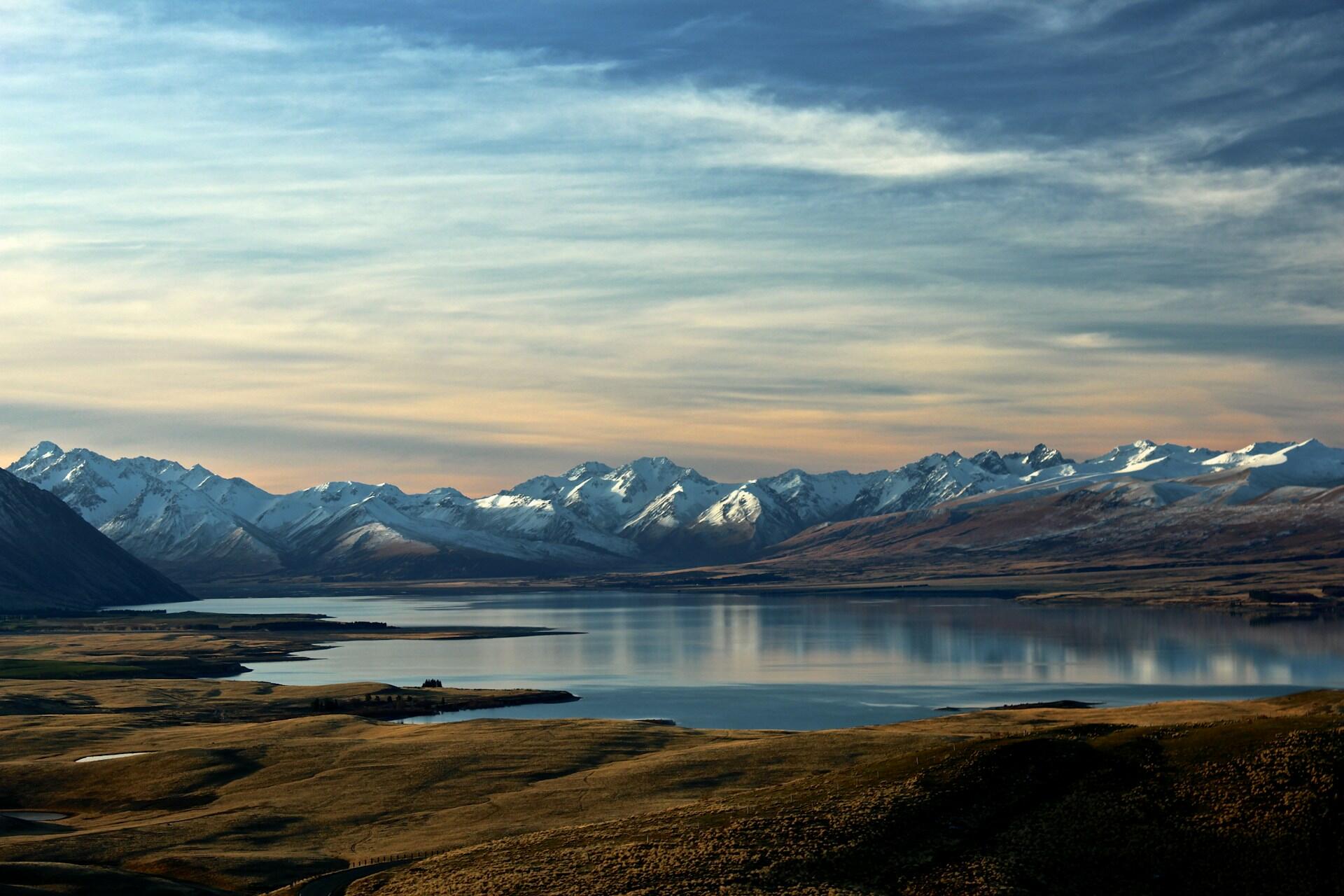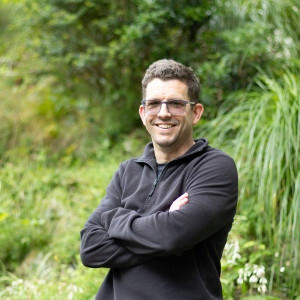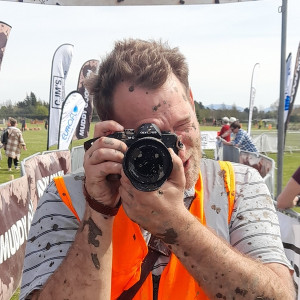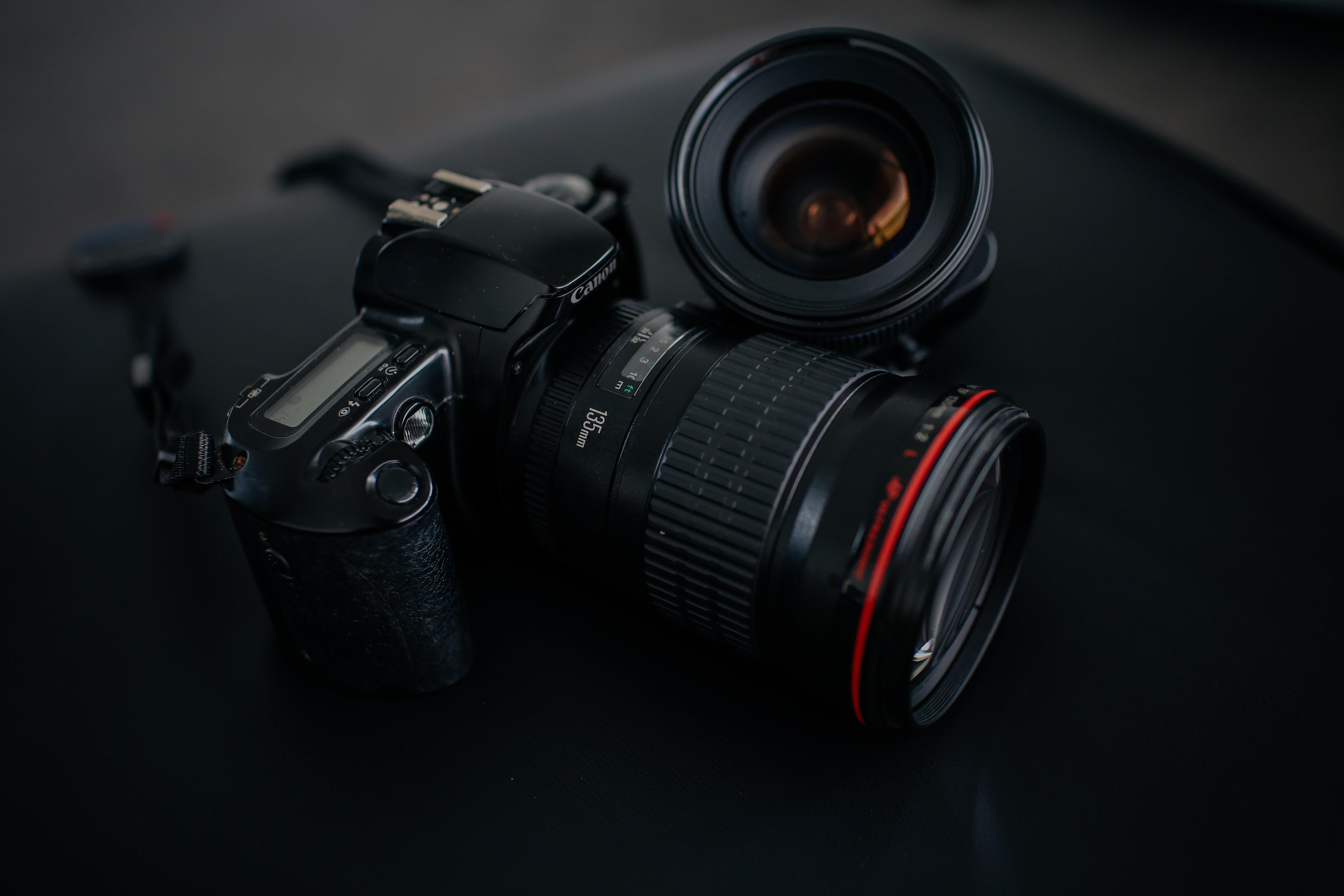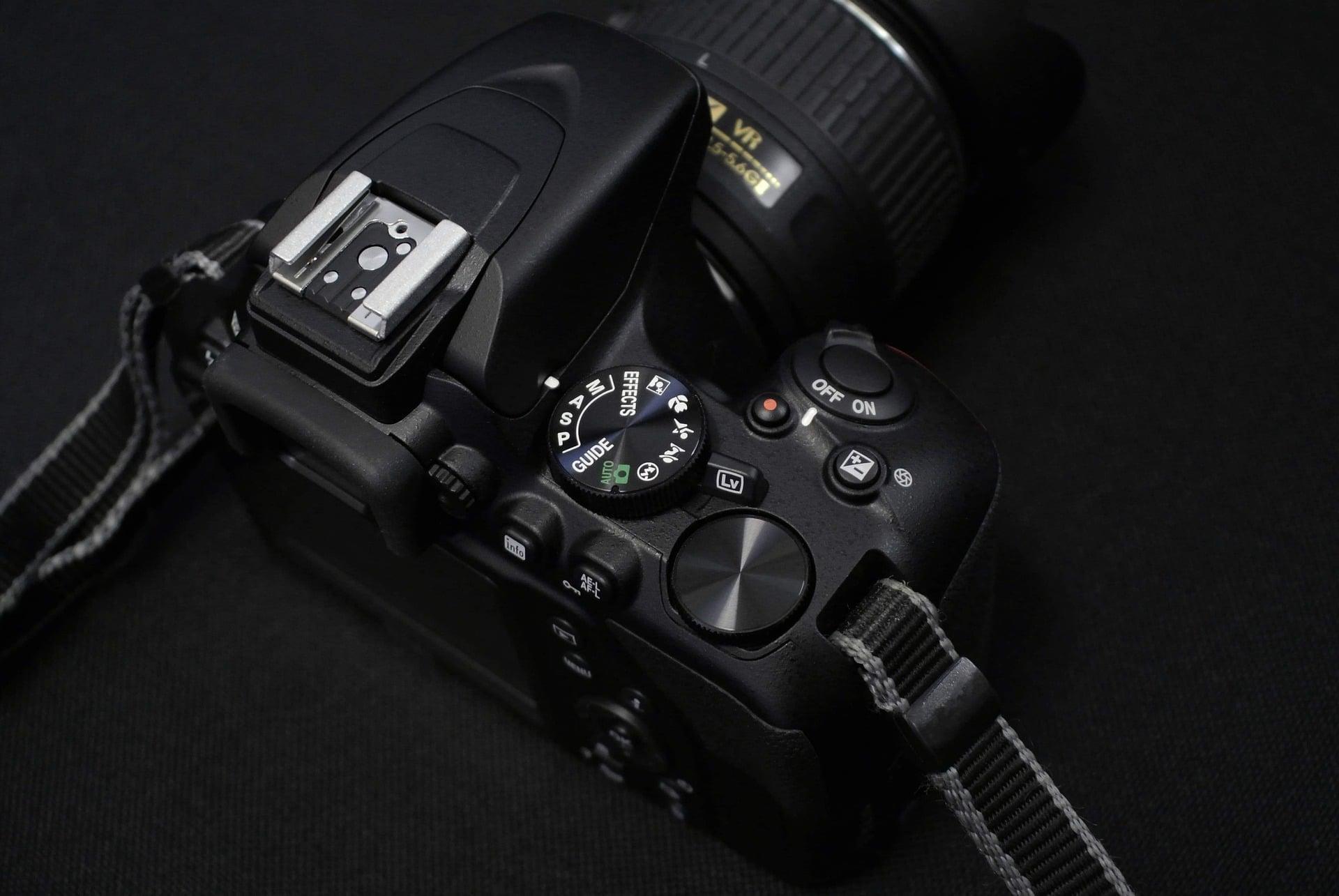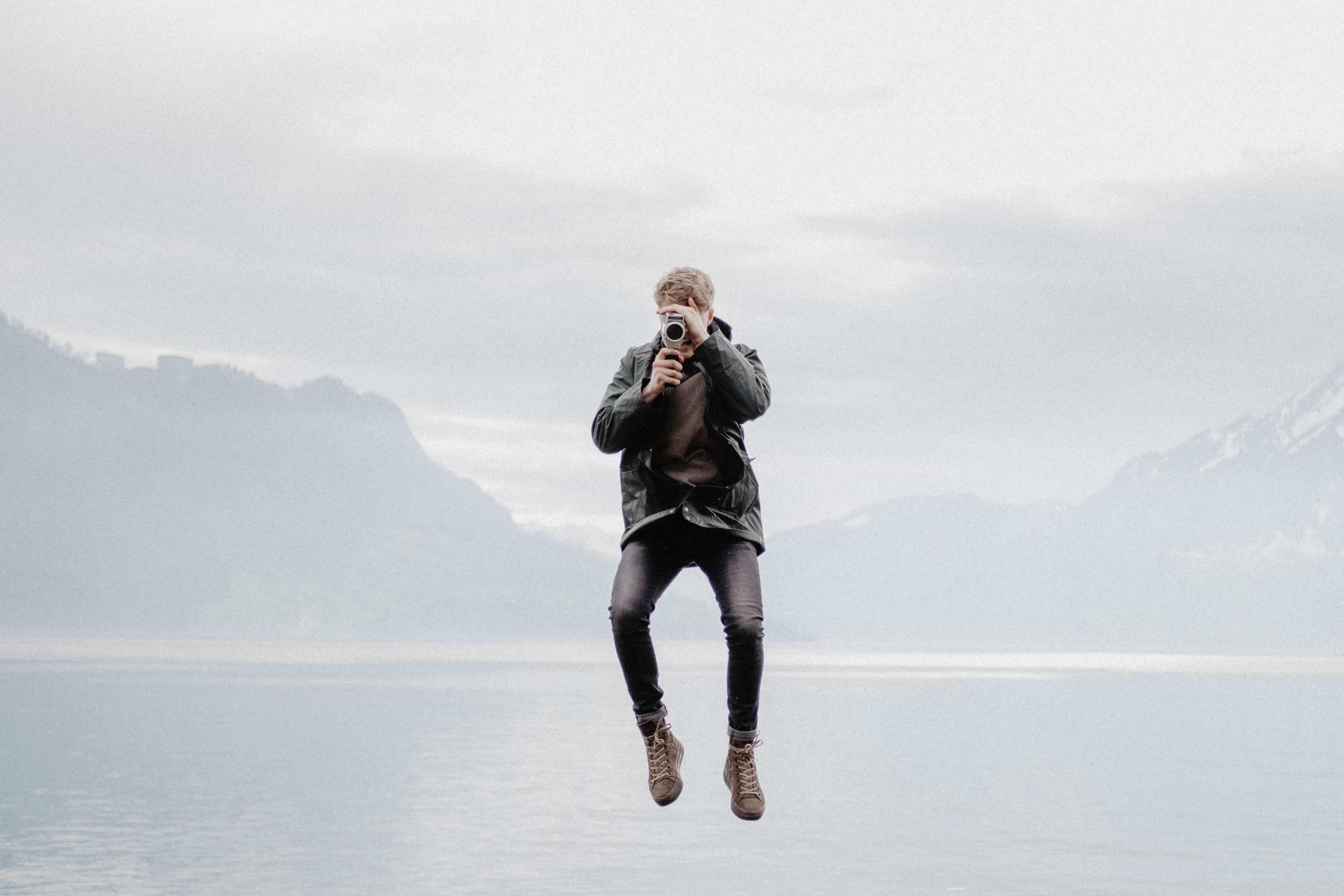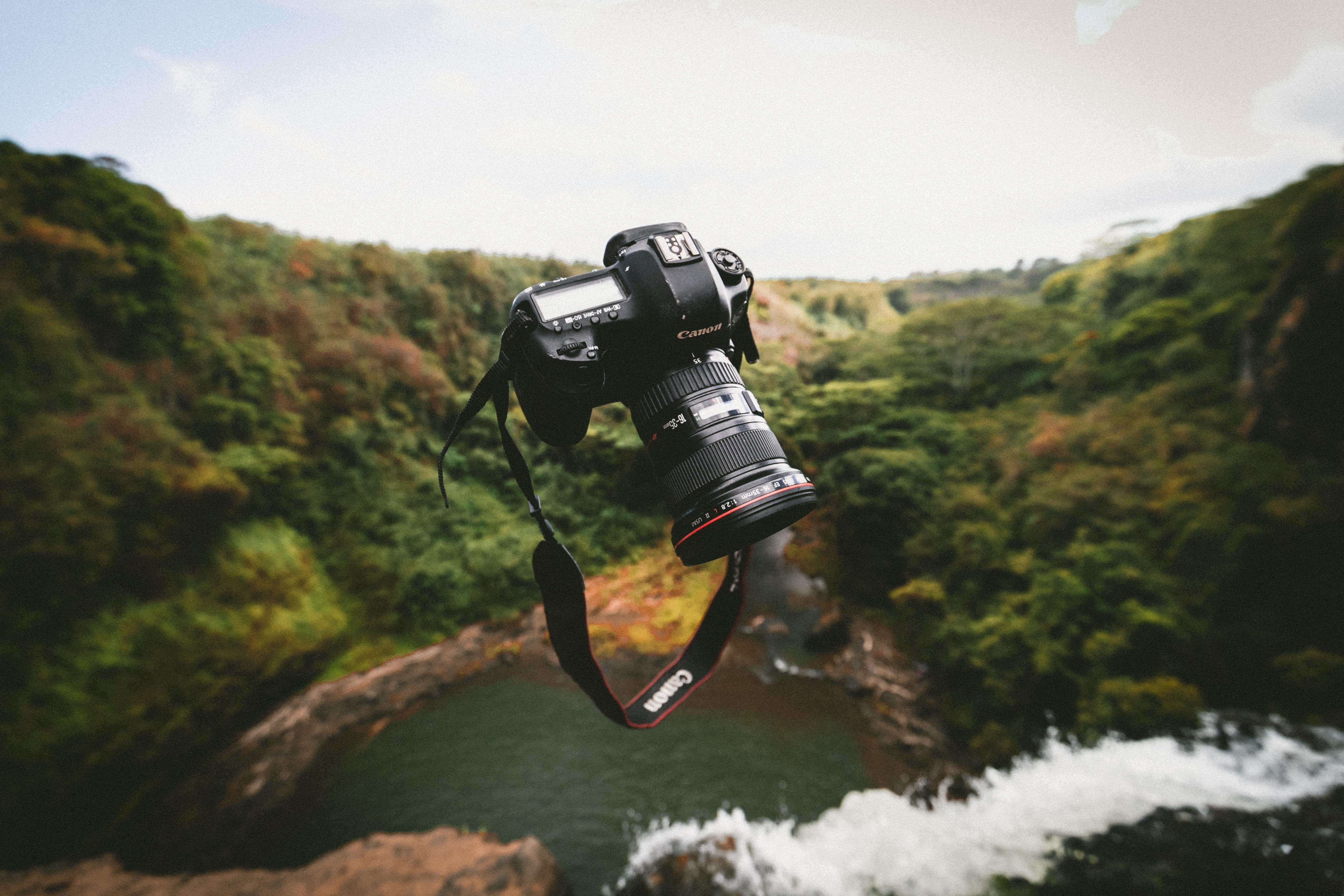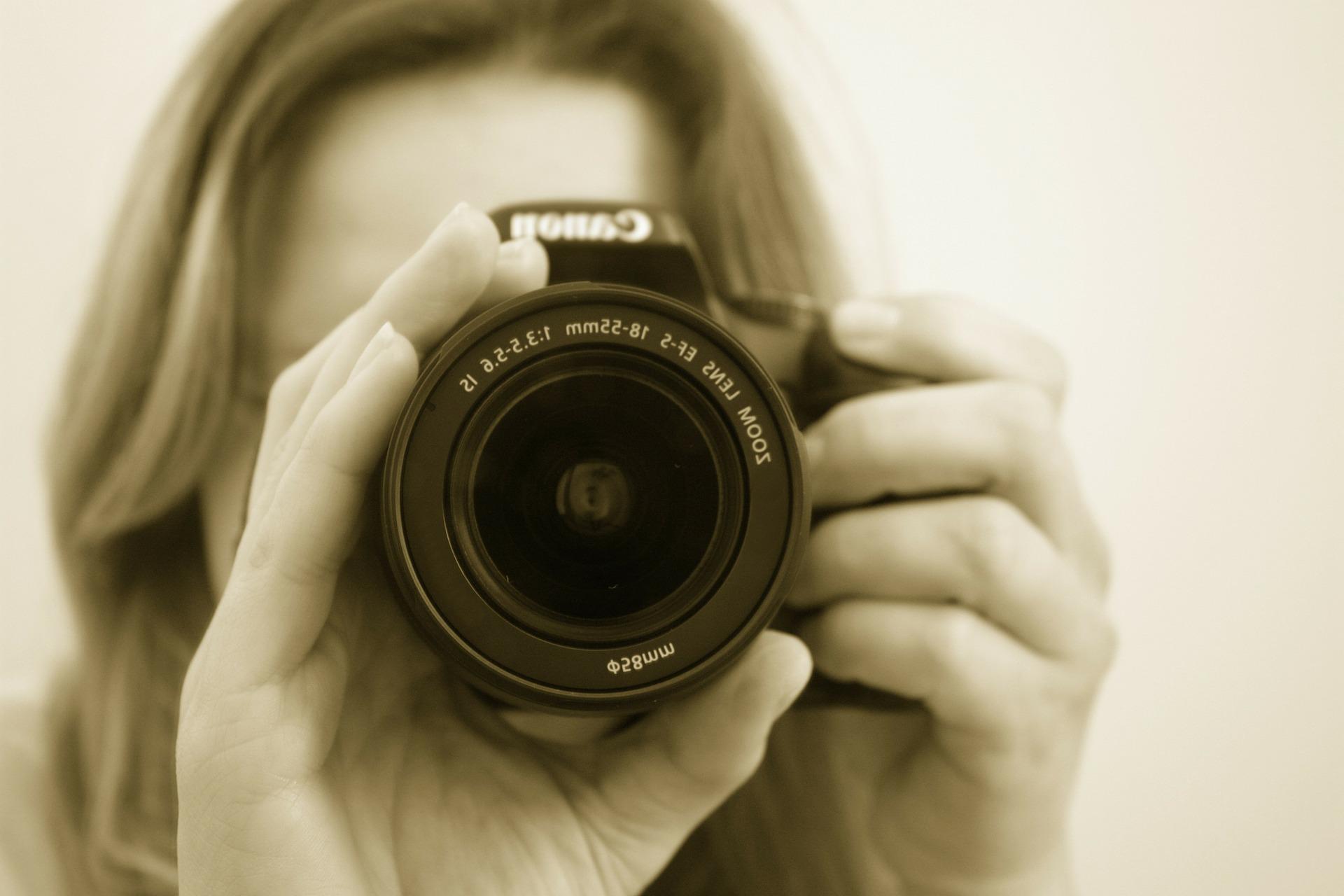New Zealand is an incredibly photogenic place, from the snow-capped mountains to the sunlit coastlines. Here, we'll look at 10 of the best places to photograph in New Zealand, which offer a mix of natural beauty, urban landscapes, and tourist attractions.

Start in the City: Auckland’s Skyline and Coastal Gems
New Zealand's largest city, Auckland, on the North Island, is the perfect starting point for any photographic journey. It offers a mix of urban landmarks and natural scenery.
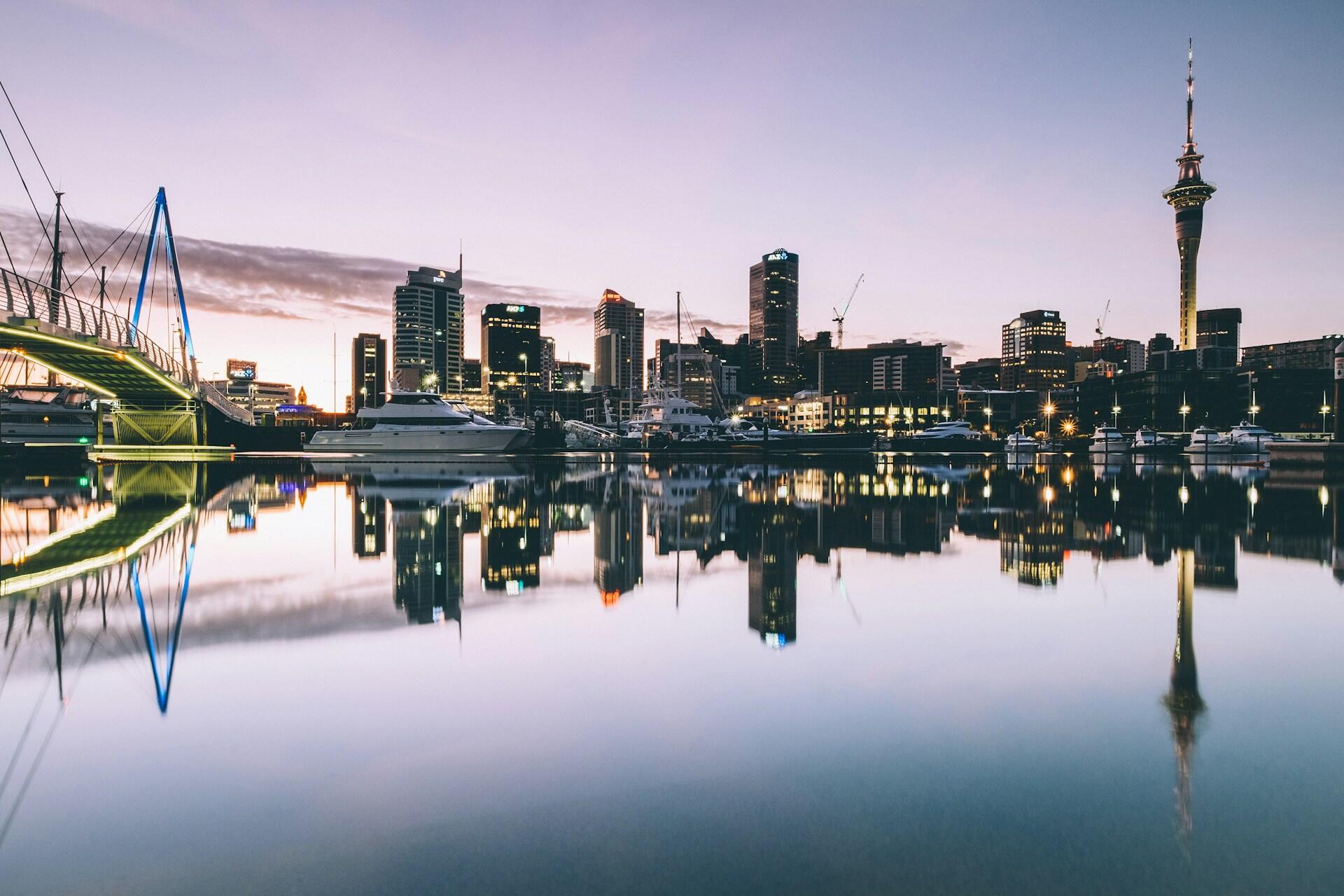
Whether you photograph the Sky Tower dominating the city's skyline or the Viaduct Harbour and Wynyard Quarter for waterfront reflections, your shutter button will be busy.
You can also enjoy the natural contrast of Mission Bay or Waiheke Island. The Auckland Domain, Albert Park, and Wintergardens are great for more relaxed shots.
Don't miss sunset from Mount Eden, one of Auckland’s volcanic cones, for one of the best panoramic shots in the city.
Step Into Fantasy: Photograph the Magic of Hobbiton
This location is excellent for cinema fans, Tolkien, or just taking great photographs. Hobbiton is on the rolling hills of Matamata on the North Island.
It was initially built for The Lord of the Rings and The Hobbit trilogies, but the movie was preserved and turned into an attraction.
The guided tour takes you past 44 hobbit holes, each with incredible attention to detail. You can photograph the round green door of Bag End and visit the Green Dragon Inn for a drink.
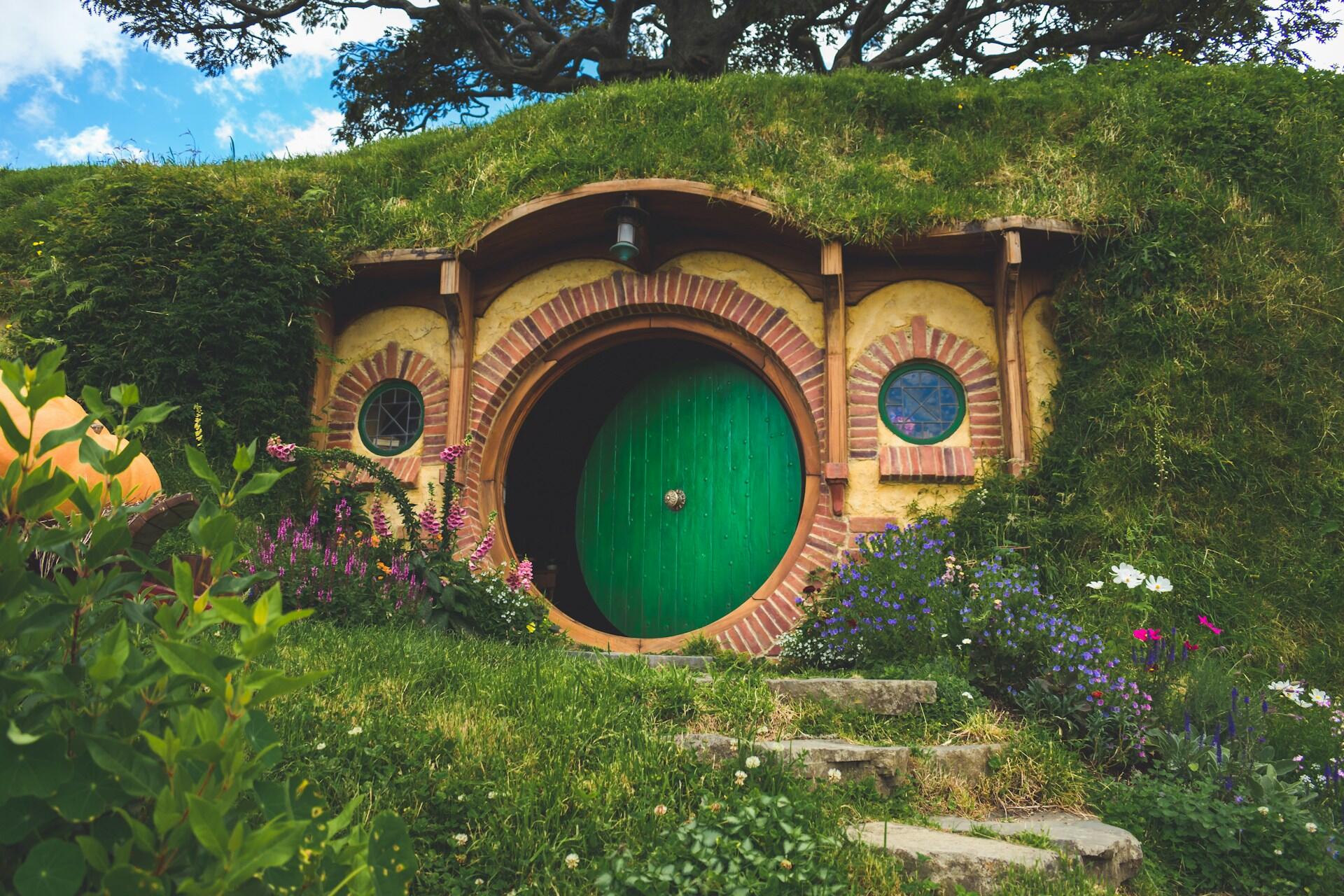
The pristine landscaping and the attention to detail mean your photographs will be great.
Witness the Wonder: Capturing Milford Sound’s Dramatic Scenery
Milford Sound is located in Fiordland National Park on New Zealand's South Island.
With its towering mountains, cascading waterfalls, and mysterious mornings, every hour of the day offers iconic photography opportunities.
Take a cruise through the sound to get photos of Mitre Peak, Stirling Falls, and fur seals basking on the rocks.
The Milford Foreshore Walk is another option for those who prefer “dry” land, especially during sunrise when the water reflects the dramatic cliffs above.
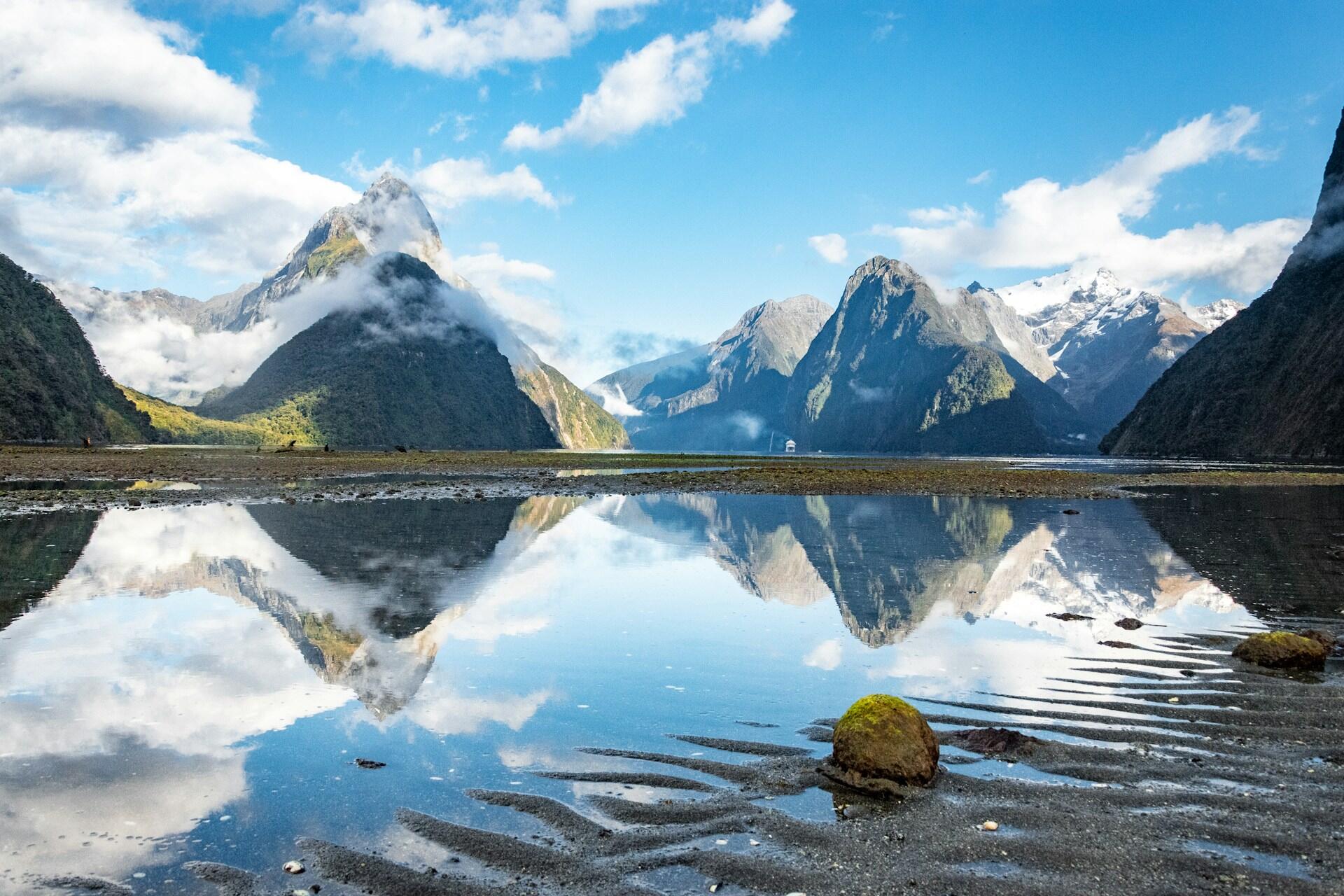
It regularly rains here, which creates temporary waterfalls down the rock faces. Rain or shine, Milford Sound will deliver world-class landscape photography opportunities.
Base yourself in Te Anau or take a scenic flight from Queenstown for stunning aerial shots over the mountains and fjords.
Stand Among Giants: Photographing Aoraki / Mount Cook
Aoraki / Mount Cook is New Zealand's tallest mountain, at 3,724 metres. It's arguably the country's most awe-inspiring natural feature, and it is located in the heart of the Southern Alps on New Zealand's South Island.
Wide-angle shots of Aoraki reflected in the waters of Lake Pukaki are often amazing, but you can also hike the popular Hooker Valley Track to Hooker Lake to see floating icebergs.
For even higher views, the Mueller Hut Route offers overnight access to mountain vistas and an otherworldly experience of the night sky.
Visit between October and March for access to high alpine tracks and clear-weather conditions. Bring a tripod if you plan to shoot the stars.
Lake Tekapo and the Church of the Good Shepherd
Lake Tekapo, with its blue waters and incredible alpine backdrop, is one of New Zealand's most popular destinations, especially for photographers.
In the Mackenzie Region of the South Island, here's a spot where you can enjoy both natural beauty and human-made charm.
The Church of the Good Shepherd is a small stone chapel perched on the lakeshore, creating a timeless photographic composition. In late spring to early summer, fields of lupins are in bloom.
Once the sun goes down, you can also enjoy the night sky. After all, Tekapo is part of the Aoraki Mackenzie International Dark Sky Reserve. This makes it one of the world's best places for stargazing and capturing the Milky Way over the lake.
Use a wide-angle lens to frame the church and the surrounding landscape. For night shots, shoot in winter for the clearest skies.

The Glowworm Caves of Waitomo
The Waitomo Caves are hidden beneath the hills of the North Island. As photography experiences go, this is one of the most unique available in New Zealand.
You can see thousands of tiny glowworms lighting up the darkness like stars in the night sky.
The guided tours will take you by boat through the Glowworm Grotto, allowing you to float silently beneath the bioluminescent ceilings, which are great for slow-shutter shots.
Tripod and flash photography aren't permitted in the caves, but special packages are available for those who like to take things slow and get the best shots.
The limestone formations and stalactites around the Waitomo region are also fantastic for surreal detail shots.
If you're taking photos on a specialty glowworm tour, bring a camera with excellent low-light sensitivity and use manual focus.
Franz Josef and Fox Glaciers: Ice, Sky, and Forest in One Frame
Franz Josef and Fox Glacier offer a surreal mix of landscapes on the West Coast of New Zealand's South Island.
Ancient glaciers flow from the Southern Alps into lush temperate rainforests, creating a scene of snow, sky, and greenery in a single frame.
There are also short walks to glacier viewpoints and guided heli-hikes for epic aerial shots. You can explore ice caves, crevasses, and sapphire-coloured walls. This is the place to go if you want dramatic contrasts and rare environments.
There are also nearby locations like Lake Matheson with its reflections of Mount Cook and Mount Tasman, particularly at sunrise and sunset.
Pack rain gear as this region is known for high rainfall. Cloudy skies, however, can add mood and drama to your glacier shots.
Rotorua’s Geothermal Wonders and Māori Culture
Rotorua is one of the best locations for photography on New Zealand's North Island. This geologically active zone has mud pools, steaming vents, and colourful hot springs.
Wai-O-Tapu Thermal Wonderland offers opportunities to photograph the Champagne Pool, the Devil's Bath, and the Lady Knox Geyser. Incredible names aside, these natural phenomena are highly photographic, particularly in the early morning light.
Rotorua is also a centre of Māori culture. Whakarewarewa Living Village and Te Puia offer performances, carvings, and traditional marae architecture, great for portraiture and cultural storytelling through photography. Just make sure you ask permission before photographing.
Use a polarising filter to cut through steam glare and highlight the vibrant mineral colours in the pools and vents.
Cape Reinga: Where Oceans Meet at the Top of the North Island
Cape Reinga is at the northern tip of New Zealand's North Island. It offers a powerful and remote landscape.
It's at the point where the Tasman Sea meets the Pacific Ocean, with a line of waves crashing in very photogenic ways.
The Cape Reinga Lighthouse is perched on a dramatic clifftop, creating one of New Zealand's most iconic silhouettes, particularly during sunrise and sunset.
According to Māori tradition, this is where spirits depart to return to Hawaiki, the ancestral homeland. A pōhutukawa tree on the edge of the cliff is said to mark that final point of departure.
For best results, bring a wide-angle lens and ND filter to experiment with long exposures of ocean movement beneath the cliffs.
Moeraki Boulders: Natural Curiosities on the Otago Coast
The Moeraki Boulders are scattered along Koekohe Beach on the Otago Coast on New Zealand's South Island.
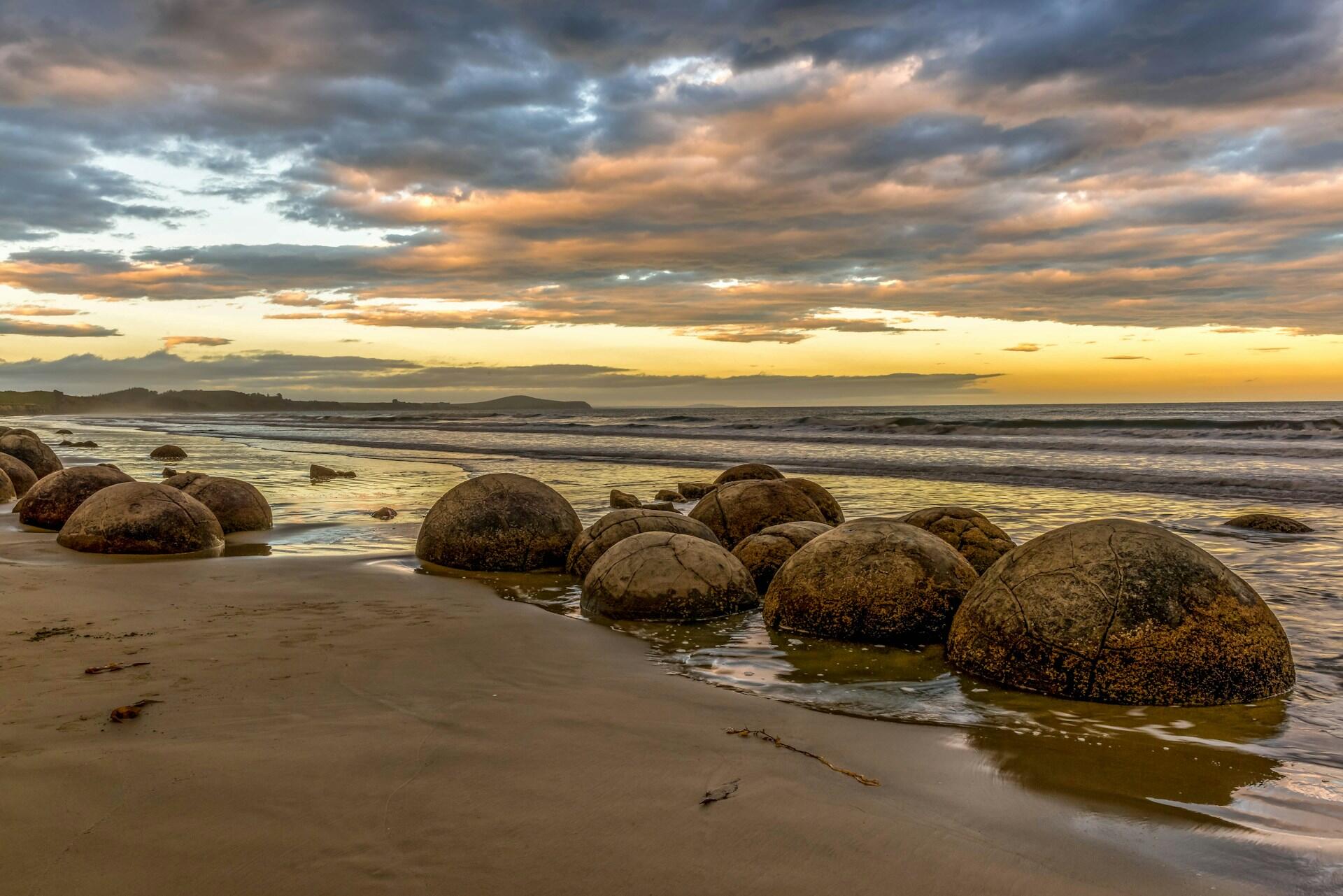
These look like something from another planet: spherical stones that have formed naturally over millions of years. The process that formed them is called concretion, and if you're looking for creative travel photography, this is the ideal destination.
Sunrise is the best time of day for photography here, with soft orange light highlighting the boulders' textures and long shadows being cast on the wet sand.
You can take completely different photographs on overcast days, especially in black and white.
When the tide comes in, water rushes around the boulders, creating even more opportunities for interesting photography, especially long-exposure shots.
Use a tripod and experiment with slow shutter speeds to capture the motion of the waves against the boulders' stillness.
Bonus Itinerary: How to Plan a Photographic Tour of New Zealand
What if you want to visit these locations and fill up rolls of films or drives with photographs?
Here's our suggested itinerary:
Sample Two-Week Photo Itinerary
- Day 1–3: Start in Auckland – Snap the Sky Tower, harbour, and beaches
- Day 4: Day trip to Hobbiton via Matamata
- Day 5–6: Head south to Rotorua – Geothermal features + Māori culture
- Day 7–8: Fly or drive to Queenstown; continue to Te Anau
- Day 9: Full-day Milford Sound cruise and photo walk
- Day 10–11: Drive up to Aoraki / Mount Cook – Hike the Hooker Valley Track
- Day 12: Visit Lake Tekapo and the Church of the Good Shepherd
- Day 13: Coast over to Franz Josef Glacier
- Day 14: Wrap up with sunrise at the Moeraki Boulders
Tips for Trip Planning:
- Travel south to north or vice versa to keep things efficient
- Summer (Dec–Feb) has the best trail and weather access, but shoulder seasons offer great light and fewer crowds.
- Bring multiple SD cards, spare batteries, and lens cloths—you'll use them all.
- Mix in iconic locations with lesser-known ones like Cape Reinga or Waitomo for variety.
Summarise with AI:

